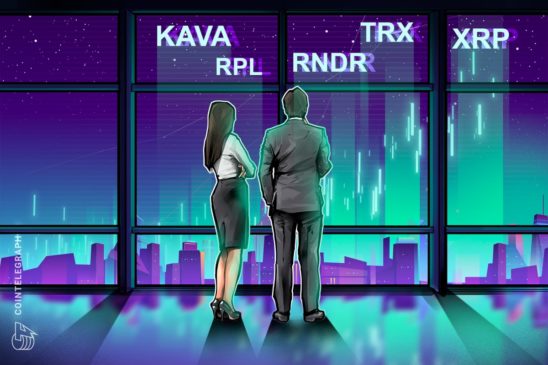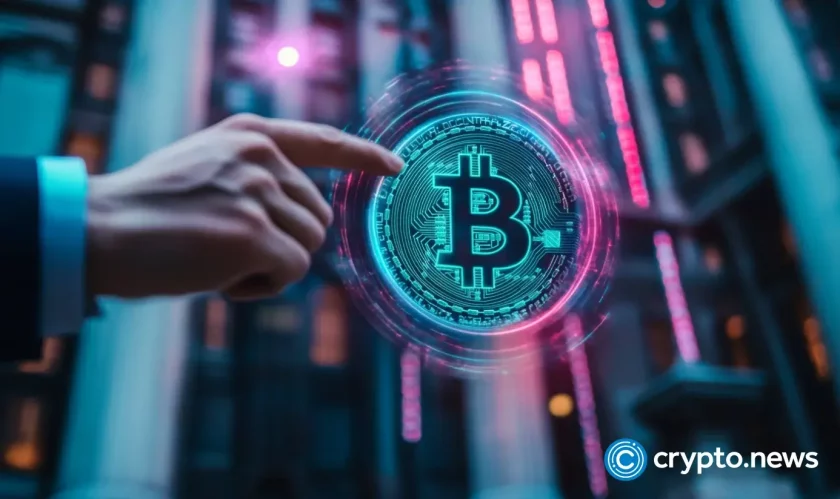The cryptocurrency market experienced a dull month, with Bitcoin (BTC) dropping 7.37% — its worst performance since November 2022 — and Ether (ETH) losing 0.22% in May.
The average loss across the market stands at 5.62% on the last day before the monthly close.
However, some outliers posted impressive gains thanks to popular investment narratives and the growth of the Ethereum staking sector.
In the first half of May, memecoins grabbed headlines, with Pepecoin (PEPE) leading the narrative. The memecoin cycle guzzled up a lot of gas on Ethereum in the first half of May.
PEPE’s market capitalization surged to a peak of $1.54 billion in the first week of May, according to CoinGecko. It has witnessed a sell-off since then, as tokenholders booked profit. However, the token still ended the month with over 300% gains.
Kava price analysis
The positive catalyst that propelled the Kava (KAVA) price came from a mainnet upgrade on May 17. KAVA’s price started surging a week before the update, which enhanced the blockchain’s throughput and security.
KAVA also got a boost from tokenholders’ suggestions to terminate the project’s grants and rewards programs by the end of 2023.
Technically, the KAVA/USDT pair faces resistance from the long-term support and resistance level at $1.14. A successful breakout above this level will motivate buyers to push KAVA toward $1.50. Support from buyers to the downside lies at $0.96 and $0.80.
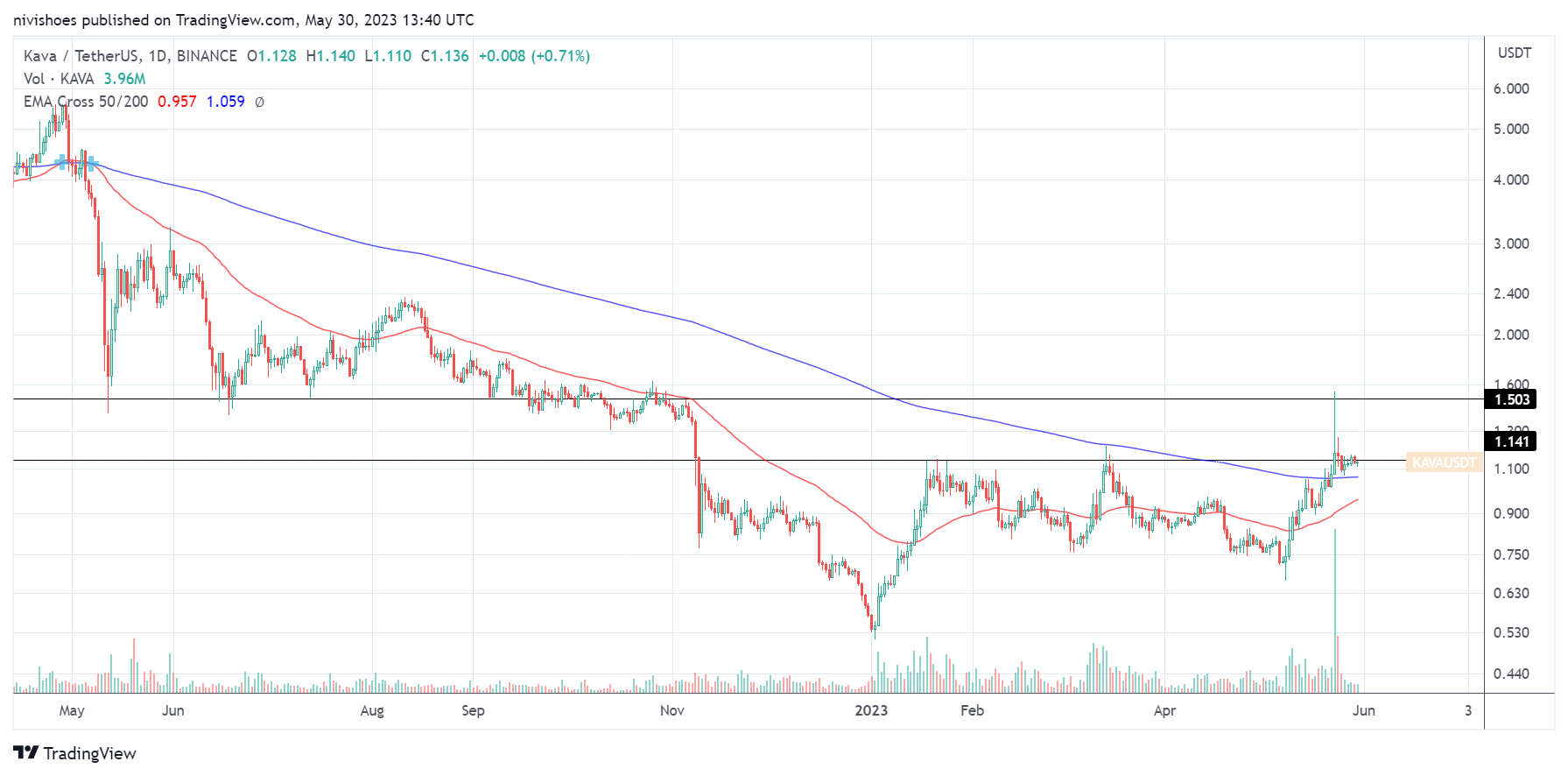
XRP price analysis
XRP (XRP) posted a 7.29% gain over the month, with most of its price surge coming in the last few days.
The token recorded a spike in its daily transfer activity, which usually precedes a positive rally. Traders piled in with buy orders after on-chain analytics firm Santiment reported the activity on Twitter.
According to popular opinion, Ripple, the fintech company behind the XRP token, is close to winning its securities case against the Securities and Exchange Commission. The verdict could come as early as June.
Technically, XRP faces resistance from the October 2022 and 2023 yearly peak levels of around $0.54. A successful breakout above this level can propel the price to the 2022 breakdown level of around $0.79.
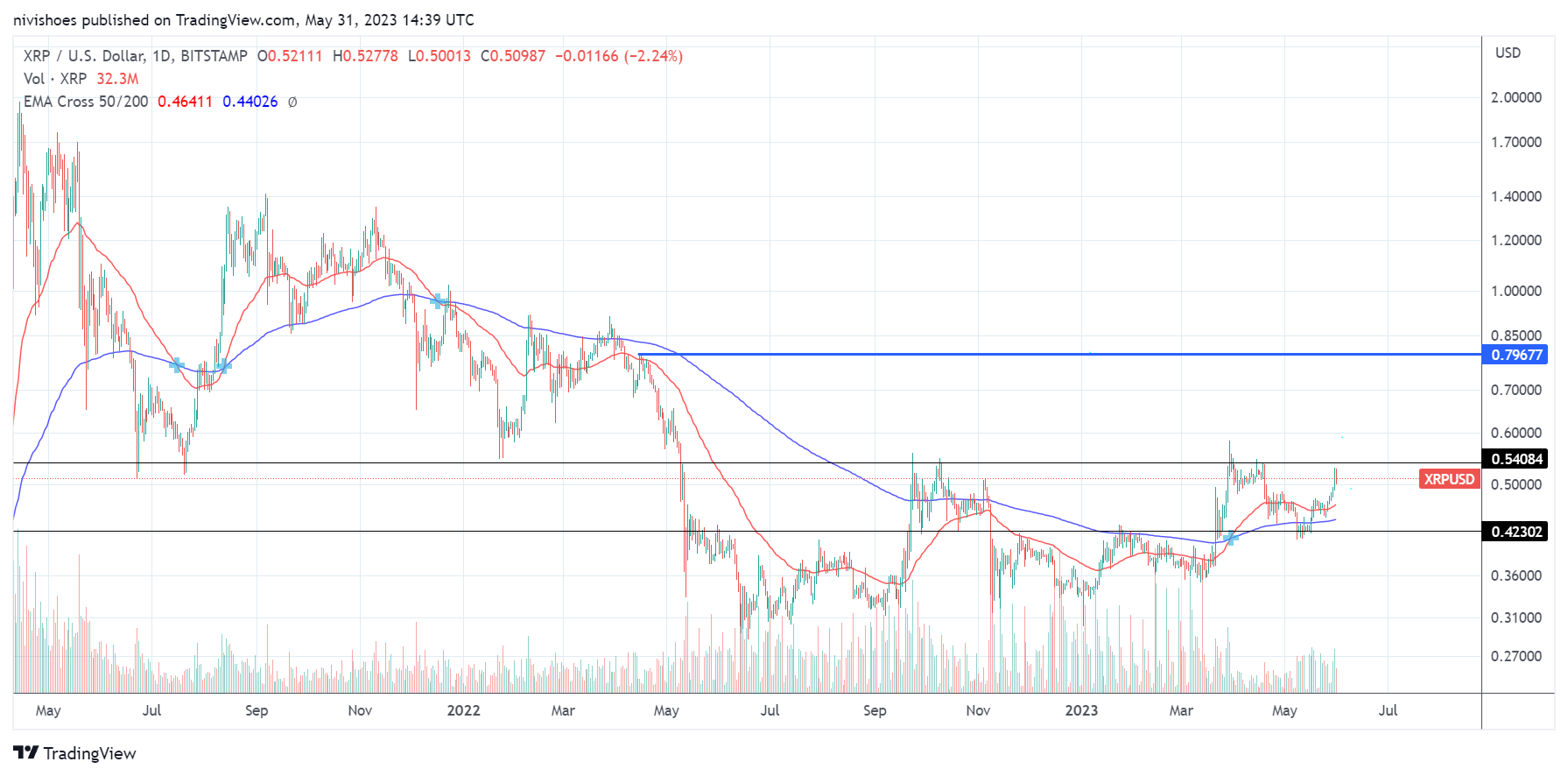
Tron price analysis
Tron (TRX), a layer-1 blockchain platform, has gained popularity in the last few weeks, as reports around its usage in market-making on centralized exchanges and the network’s revenue made headlines.
While Tron’s decentralized finance usage is limited, it is the leading blockchain platform for Tether (USDT) issuance. The amount of USDT on Tron is $40 billion and surpasses the stablecoin’s supply on Ethereum by $10 billion, according to Coin Metrics’ supply data.
Kaiko, a crypto research firm, cited that the reason for Tron’s dominance could be low fees, which makes transactions cheaper for market makers on centralized exchanges.
The stablecoin transfers led to a spike in Tron fees to make it the second-highest revenue-generating blockchain after Ethereum, per Token Terminal data.
The TRX/USD pair has a bullish breakout from an ascending triangle pattern with a target of $0.112. Before the pattern’s bullish target is reached, buyers will face resistance at the 2022 high level of around $0.093.
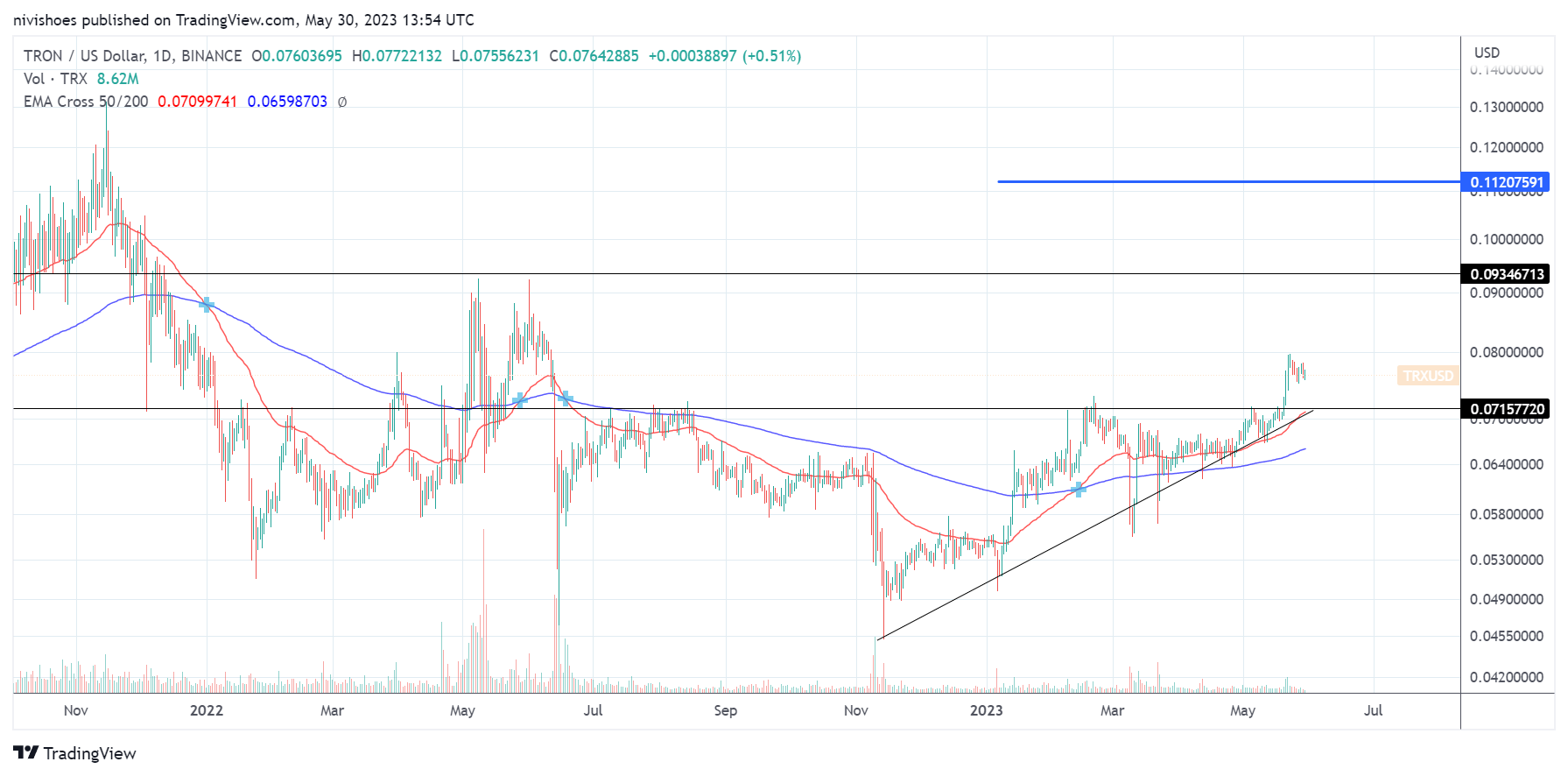
Rocket Pool price analysis
Rocket Pool is the second most popular decentralized liquid staking derivative platform after Lido. It commands a 3% market share of the total Ethereum staking pool and has grown twofold in the last six months, according to Dune data from Hildobby.
The daily chart of the RPL/USD pair looks bullish, with RPL forming a trend of higher lows restricted by the horizontal resistance at $52. If buyers conquer this resistance level, RPL can witness a 60% upside target based on the ascending triangle pattern.
The all-time high for the token is $61.90, per CoinGecko data. A price breakout above this level would technically put the token into price discovery mode without any resistance to the upside.
On the other hand, sellers will target local lows of $45.57 and $37.95 in case of correction.
Related: What are artificial intelligence (AI) crypto coins, and how do they work?
Render Token price analysis
Render Token (RNDR) benefited from the recent artificial intelligence (AI) hype that has culminated in an uptick in companies requiring graphics cards for training AI models.
RNDR is an ERC-20 utility token that powers Render Network, a protocol that provides a decentralized marketplace for graphics processing unit (GPU) power. Using RNDR as the medium of exchange, Render Network connects users looking to rent the processing power with those who have idle GPUs.
RNDR has added 5.5% gains in May, rallying strongly in the second half of the month. Data from Nansen shows that the smart token holding for RNDR has reduced since the start of this year. Nevertheless, the number of unique smart wallets holding RNDR has increased linearly during the same period.
The RNDR/USD pair has exhibited significant volatility around the resistance and support level of $2.13. If buyers build support above it, the token could enter a crucial pivotal parallel range between $3.19 and $2.13.
There is minimal resistance above $3.19, with the potential to touch 2022 highs of $5.29. To the downside, buyers may find support around local lows at $1.62 and $0.90.
This article does not contain investment advice or recommendations. Every investment and trading move involves risk, and readers should conduct their own research when making a decision.
This article is for general information purposes and is not intended to be and should not be taken as legal or investment advice. The views, thoughts, and opinions expressed here are the author’s alone and do not necessarily reflect or represent the views and opinions of Cointelegraph.
